
‘Sabotage everywhere’: at the Swiss birthplace of global anarchism
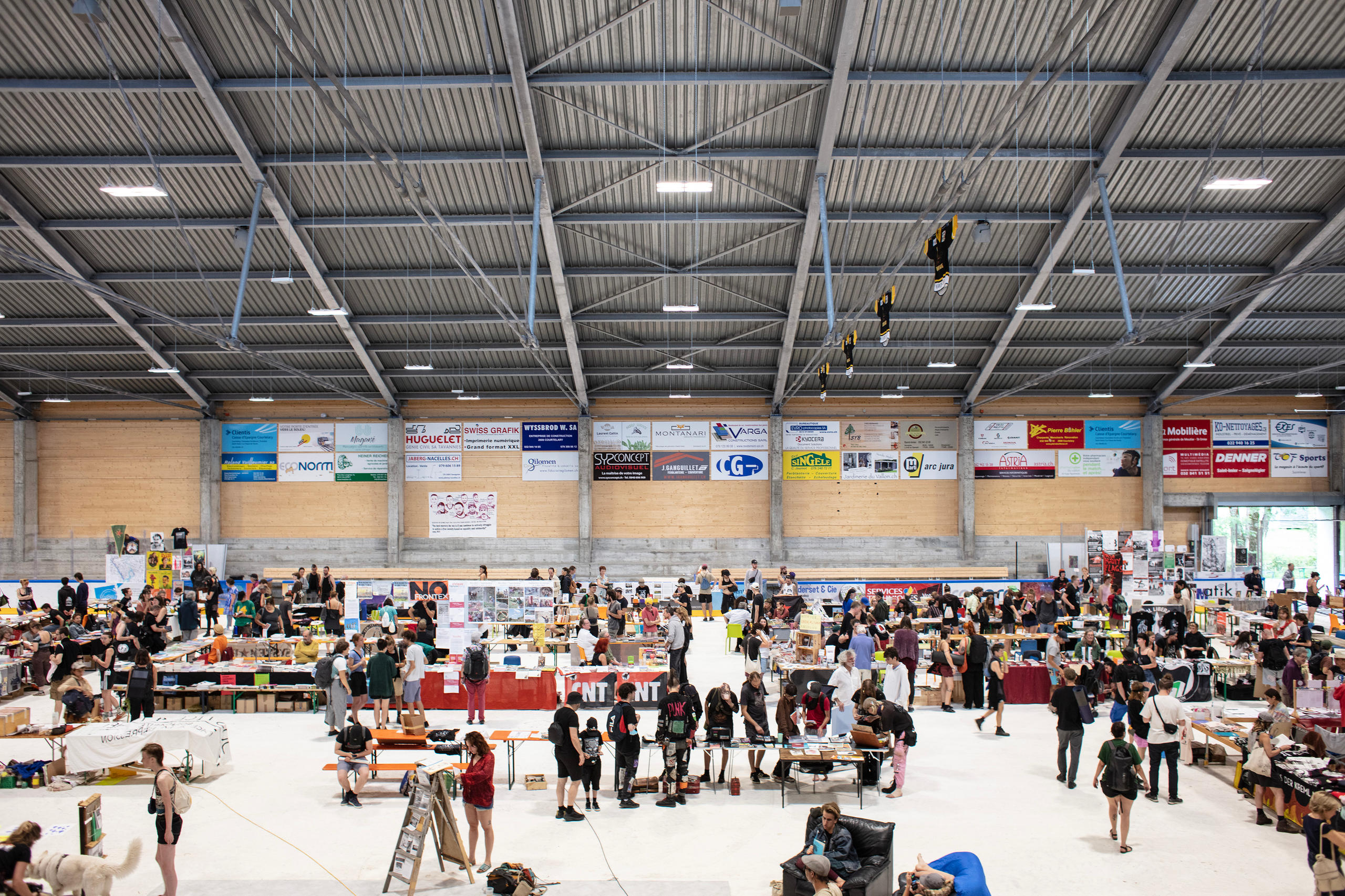
In the 19th century the anarchist gathering International was founded in a Swiss valley. To celebrate the anniversary, thousands of anarchists made a pilgrimage to the small town of St-Imier last month. Their positions, for example on Ukraine, differ widely.
Someone has sprayed graffiti on a house in the centre of St-Imier in northwestern Switzerland. “Sabotage everywhere” it says in French, with an anarchy symbol underneath. Someone else has stuck a hand-written poster in English over it: “Please respect the residents and their houses”.
This sums up the scope of the anarchist congress quite well. Some 5,000 visitors from all over the world travelled to St-Imier for “Anarchy 2023” from July 19-23: some as onlookers, most out of anarchist conviction. Many of them camped. Most wore black.
The canteen they organised cooked tens of thousands of meals over five days; the washing up was also done by volunteers.
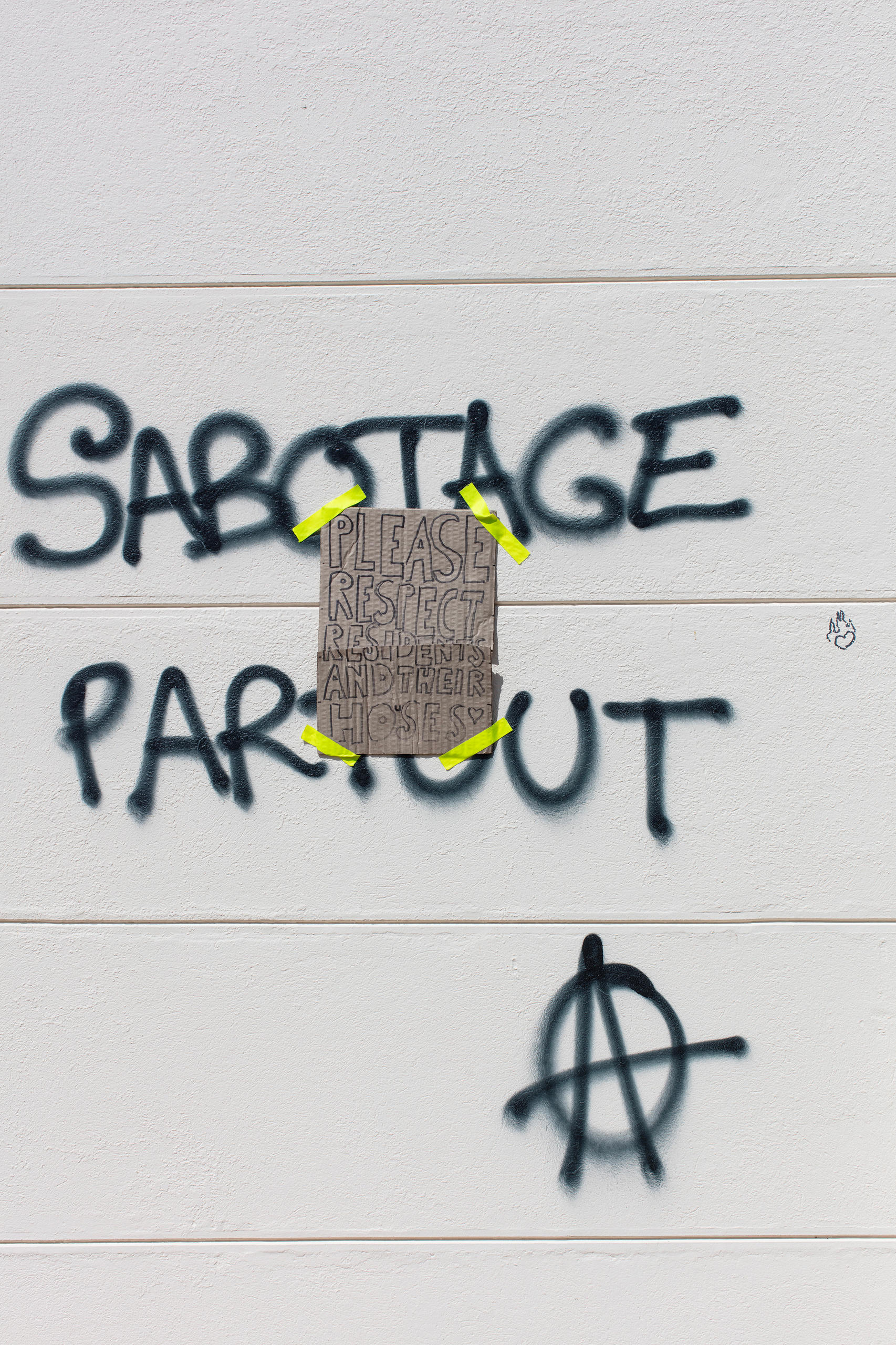
What do anarchists want?
Anarchists reject the power of the church, states and capitalism and aspire to a socialist society without power relations.
But there are many open questions: How should anarchists behave in society? Are they in favour of absolute direct democracy or do they reject democracy as a system of domination?
Anarchism has many texts and iconic figures, but unlike Marxism, for example, it is opposed to following and practising one doctrine. This is a part of St-Imier’s local history.
In 1864, the workers’ movement united in London to form the First “International”. But soon there were conflicts, above all because of the increasing powers of the general council, dominated by Karl Marx.
Criticism of Marx
In 1871, anarchist watchmakers from the valley of St-Imier wrote a letter, in which they said “it is absolutely impossible for a man who has power over his fellow men to remain a moral man”. It was clear to the recipients that this man of power was none other than Marx.
At its congress in 1872, the First International then expelled several well-known anarchists, including Mikhail Bakunin. Shortly afterwards, at an opposing congress in St-Imier, a separate anarchist International was founded – with Bakunin’s participation, of course.
The local anarchist movement continued to develop and to have an impact on the world. Thus Pyotr Kropotkin, who later achieved prominence as an anarchist revolutionary and author, wrote in his memoirs: “When I left the mountains again after a week’s stay with the watchmakers, my socialist views were fixed: I was an anarchist.”
“A good ten-year summer of anarchy” followed the “springtime of the workers’’ movement in 1871” in St-Imier, according to the historian Florian Eitel in his dissertation “Anarchist Watchmakers in Switzerland”.
Anarchist yodelling
In St-Imier, which today has 5,000 inhabitants, neither the mayor nor the local businesses have any objections to the thousands of anarchist guests. The local population is not opposed to the anniversary congress, which took place in 2023 rather than 2022 because of the Covid pandemic. On the contrary.
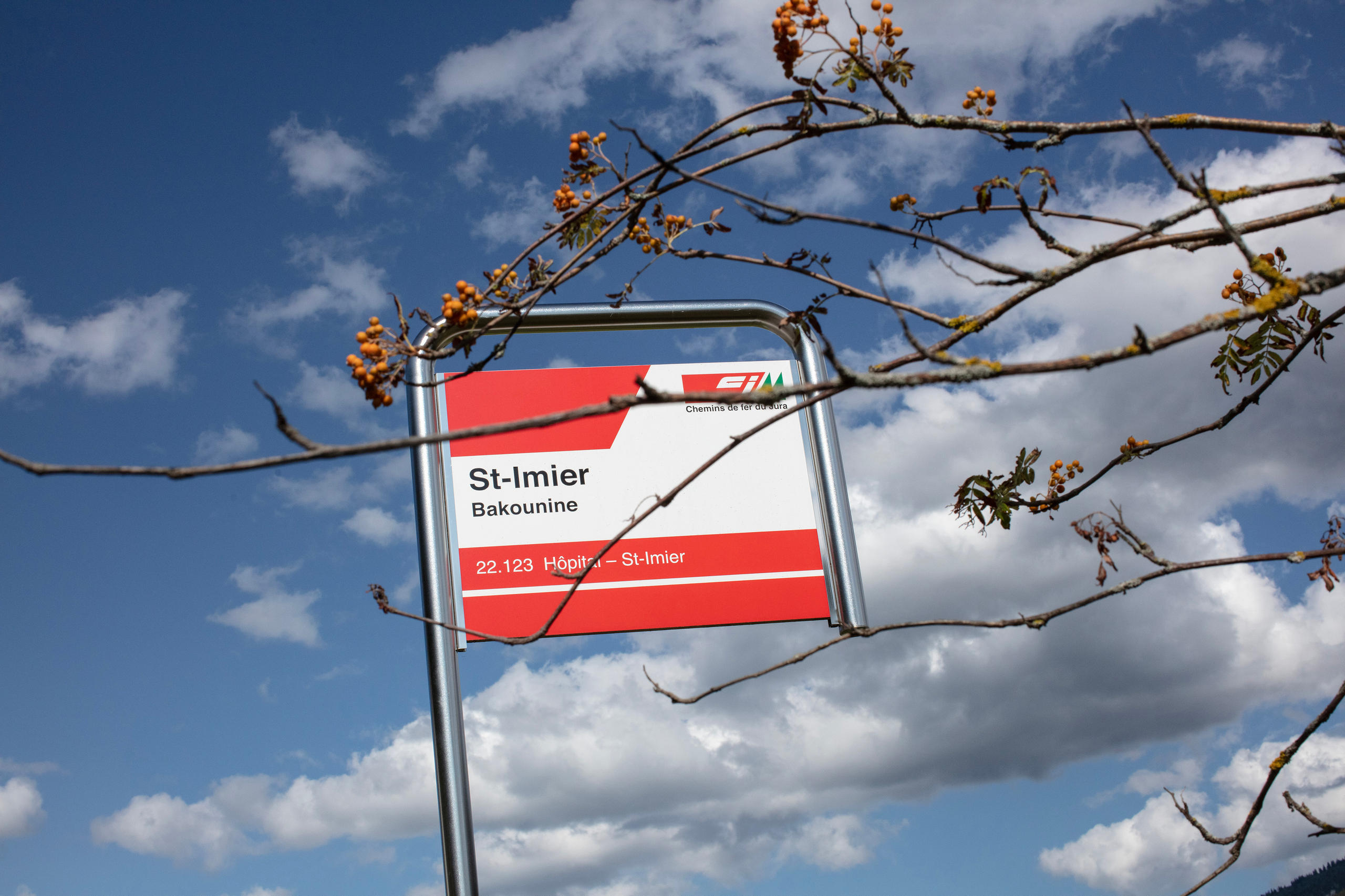
The shop assistant in the bakery thinks it is “great”. Because all the anarchists buy bread rolls? “Not just because of that. The people are very friendly and there’s not much noise.”
She takes an ambivalent view of their political beliefs. “I think some of their ideas are good, but you can’t live like that consistently. Sometimes you have a boss. That’s part of life.”
True to the ideology, the programme of Anarchy 2023 was also created without authorities: anyone could enter suggestions for the congress programme via an online form.
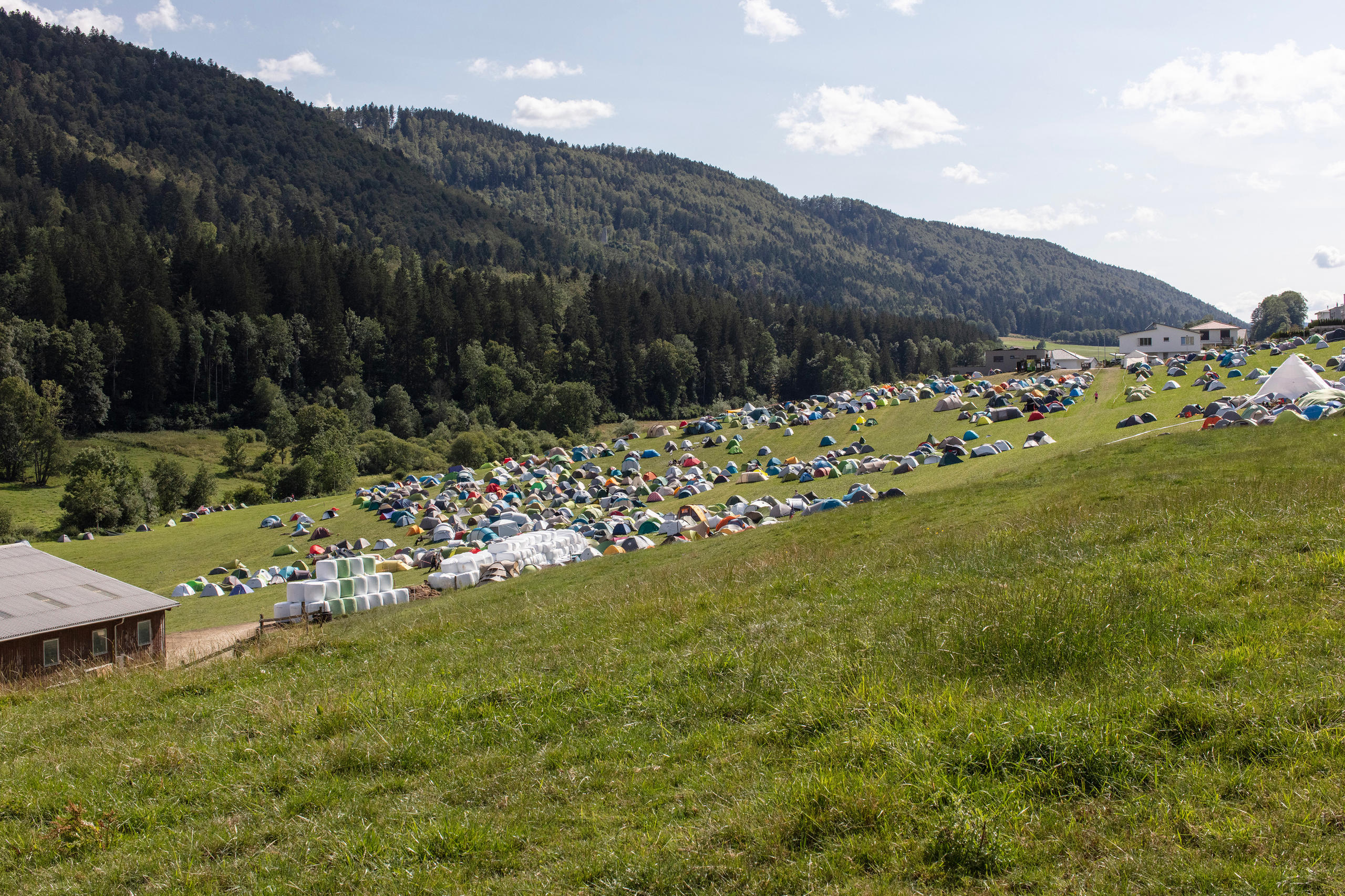
The result was a long programme with a wide range of activities: anarchist yodelling, screen printing, concerts and many, many discussions. In contrast to the huge programme, the media guide for journalists was pleasantly short. But most participants want to remain anonymous, and during many events taking photos is prohibited.
‘Still relevant’
“Good afternoon, comrades.” Two workshop leaders standing among landscape paintings welcome visitors to the packed community hall of St-Imier.
Many sit on the floor. The leaders belong to the worldwide collective Crimethinc and their English sounds American. Whether they are trained historians is not clear, but their enthusiasm for history is evident.
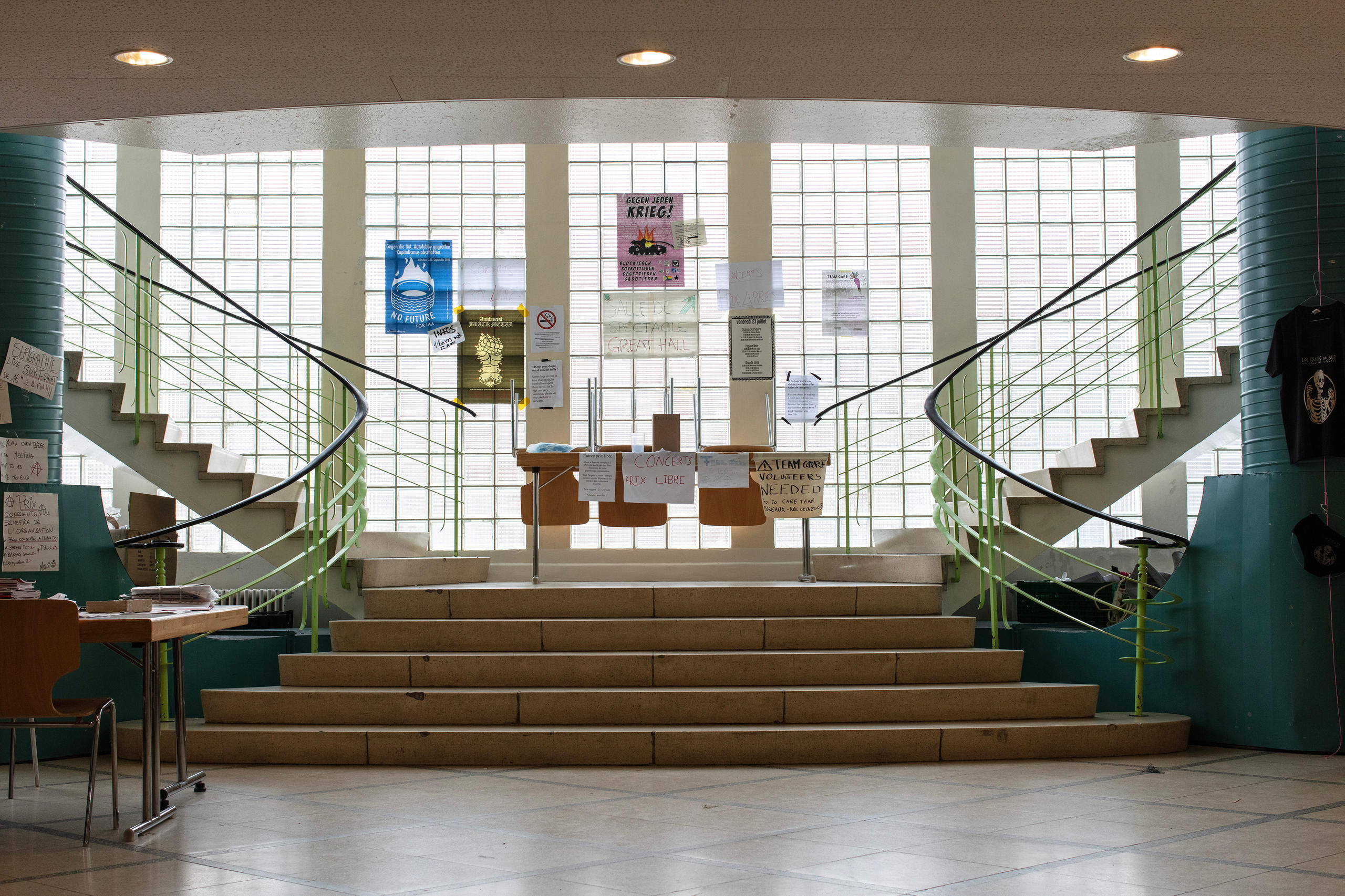
The motions of the anarchist congress in St-Imier in 1872 are “still fucking relevant today”, one of them says. Anarchist historiography is important for anarchists to be able to understand themselves as part of a movement rich in tradition, she continues.
The first trans man to undergo gender reassignment was anarchist, she says. Many developments in consumer society – from bicycle rental systems to Twitter – can be traced back to anarchist ideas that “capitalism has appropriated”, she adds.
Anarchist historiography is also important because historians show “the existing world as the only possible one”, she says.
Donations for Ukraine
At the ice rink, the jerseys of the local hockey team hang above the stands of the anarchist book fair. In a sofa corner, some people are reading books. Nearby, others are folding freshly printed pamphlets. Philosophical classics as well as self-printed pamphlets, for example opposing psychiatry, or “Anarchist Contributions to Overcoming Democracy”, are available in Russian, English or German.
Much of what is offered here is contradictory. Some of it leads to conflicts between congress participants; for example, a book with a foreword by French philosopher Michel Onfray, who moved from the radical left to right-wing extremism.
An anarchist from Belarus is collecting donations in solidarity with anarchists in Ukraine. Stickers read “Until the Kremlin burns down”, and the brochure next to it emphasises that anarchists fighting on the side of Ukraine are “resisting an imperialist invasion”.
At a panel discussion in the community centre, a Ukrainian woman described how little the theoretical discussion about the rejection of nation and state helps people living in a country under attack.
An anarchist from Belarus reports on how the anarchist movement there is oriented towards Western texts and has translated them. However, she says she has had unpleasant experiences with Western anarchists lecturing anarchists from Belarus about what it means to live and operate in Belarus.
Misinformation about Zelensky
The flip side of an open programme without restrictions could be experienced at a workshop on antimilitarism and the war in Ukraine: an elderly anarchist from Germany tells a mostly German audience about his manuscript, which he would like to publish as a book.
He says he opposes arms deliveries to Ukraine. He says, among other things, that there are book burnings in Ukraine “on a scale greater than in 1933” by the Nazi regime. He also says that the Ukrainian President Volodymyr Zelensky is enriching himself with Western arms deliveries. Claims like these are based on misinformation on social media and Russian propaganda.
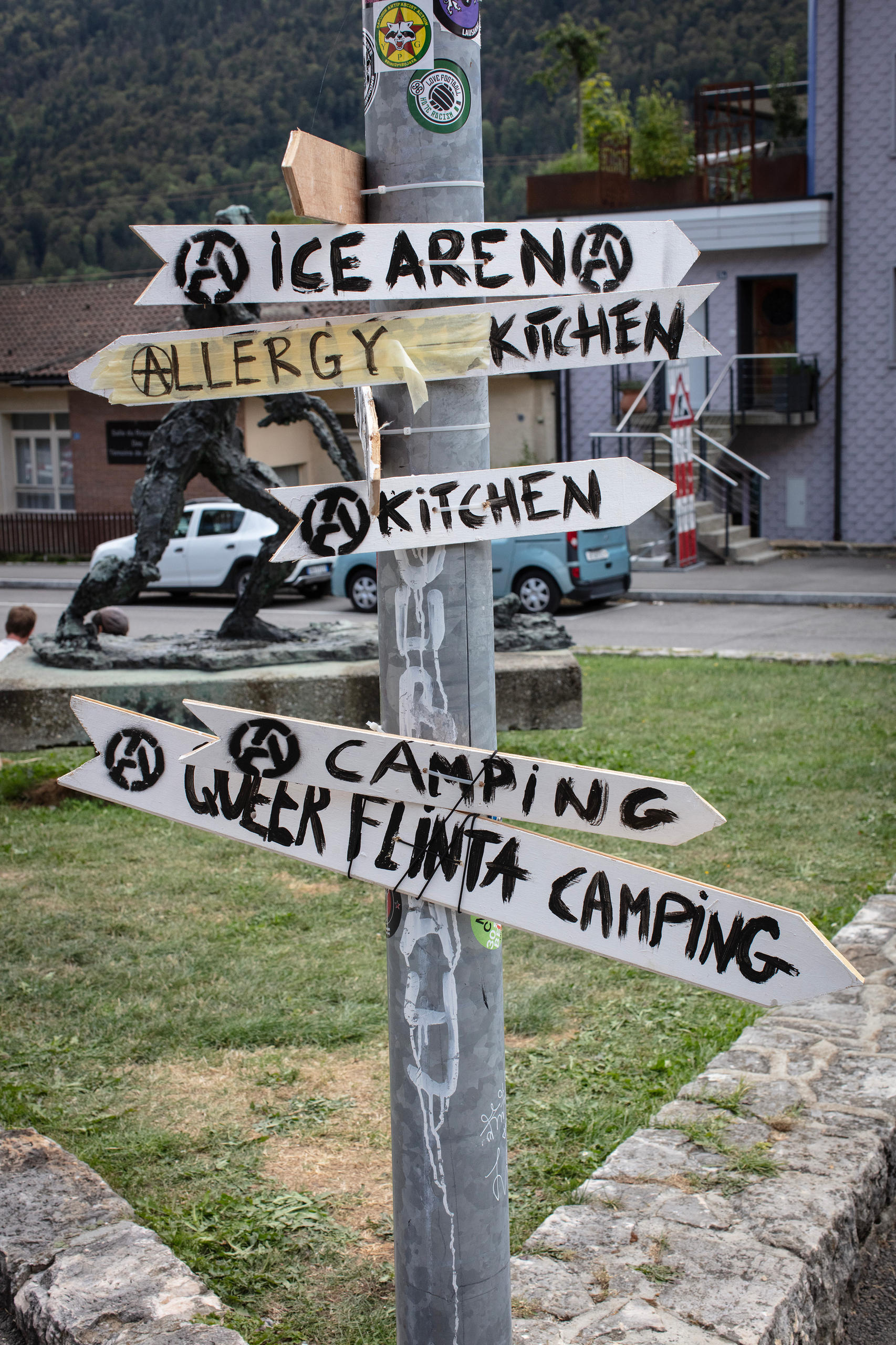
But the 30 or so people in the audience voice few doubts. Not even when he claims that the war did not begin with the Russian invasion in February 2022, but with “gigantic NATO manoeuvres” before that. He omits Russia’s annexation of Crimea and the war in the eastern provinces that has been going on since 2014.
This would be unthinkable in a curated, moderated programme. But that would also require more authority than most anarchists would like.
Later in the day, a new poster hangs above the graffiti “Sabotage everywhere”. This one asks people to refrain from graffiti – because of the impending fines for the sponsors. Someone has scrawled a joke about fines underneath in felt-tip pen.
Edited by Marc Leutenegger. Translated from German by Catherine Hickley

In compliance with the JTI standards
More: SWI swissinfo.ch certified by the Journalism Trust Initiative


























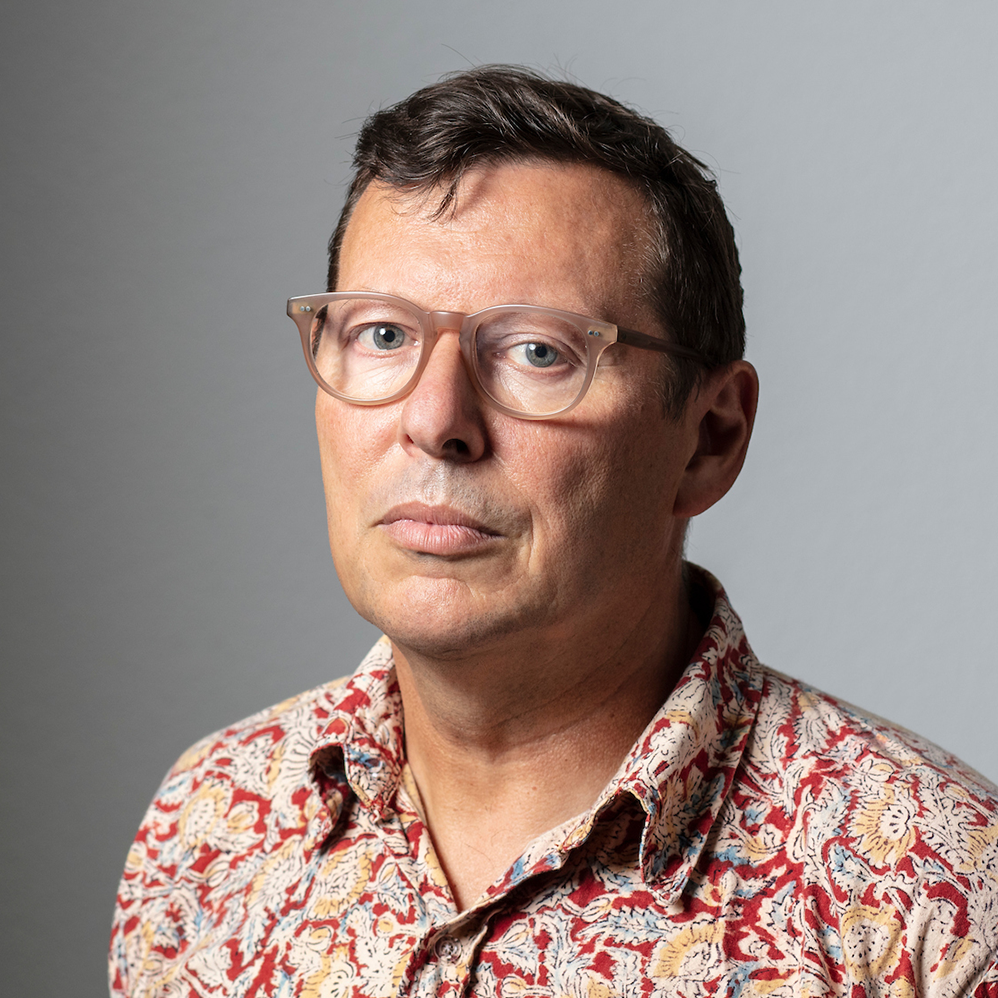

You can find an overview of ongoing debates with our journalists here . Please join us!
If you want to start a conversation about a topic raised in this article or want to report factual errors, email us at english@swissinfo.ch.